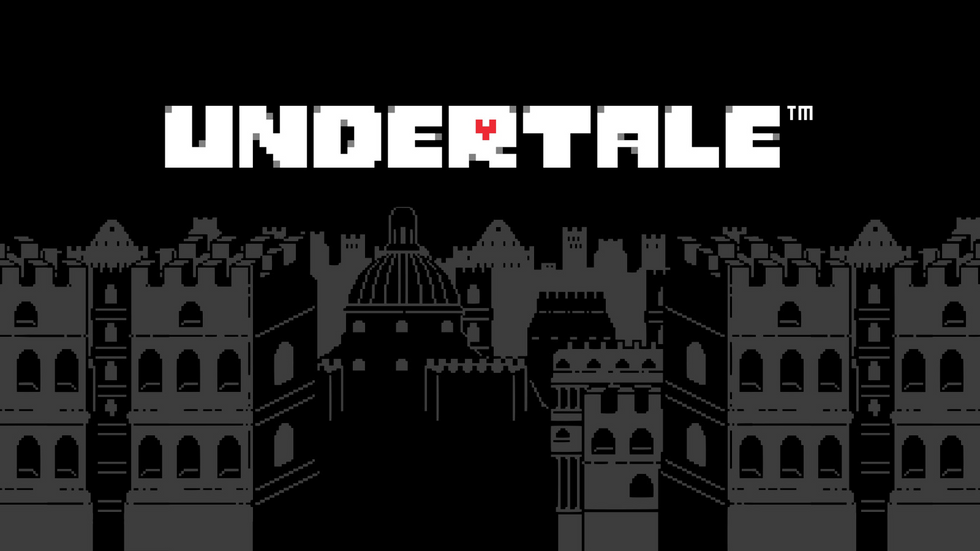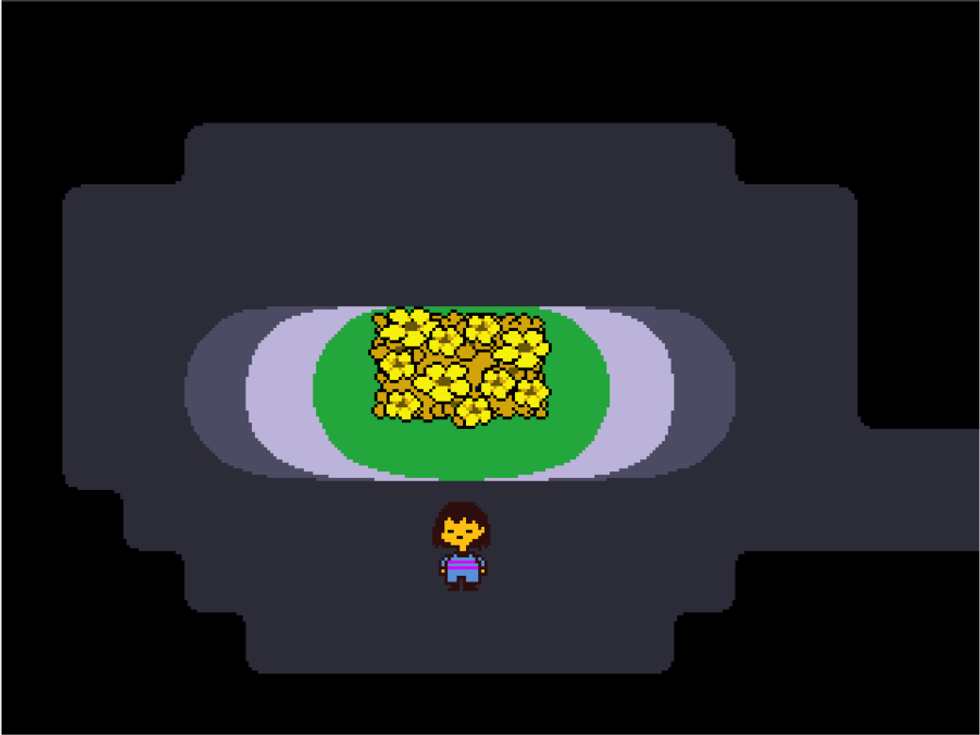There are two kinds of people in this world: people who prefer to use violence to solve their problems, and people who prefer to avoid violence as a solution at all costs. I don't necessarily endorse either method of thinking, but it's similar to the "flight or fight" response that we all have in our bodies. When we are confronted with something dangerous or possibly life-threatening, we either stand and fight off our offender, or we put an egg in our shoe and beat it...if you don't mind the expression.
What does this have to do with video games? Well, video games have often been labeled as violent, particularly recent video games like "Call of Duty," "Grand Theft Auto," and many others. Despite this, back in 2016, there was a game that came out for Mac and PC that challenged the idea of defeating and killing foes in video games.
That was "Undertale."
"Undertale" is the first game of its kind, directed and created by Toby Fox, a more-or-less faceless entity in the Indie Game community. He started his career in making games by hacking and creating different versions of the game "Earthbound," a cult classic RPG from the '90s for the Super Nintendo. Before "Undertale," he had never created his own game.
It's hard to describe the game, honestly. The plot is simple, though: it takes place in a world where there are monsters and humans, with the latter being much, much more powerful. Because the humans were scared of the monsters, they defeated them and sealed them away underground. You play as a human that hundreds of years later climb the base of Mt. Ebott and falls into a chasm. You wake up on a bed of flowers and descend into the world of monsters. You quickly learn that despite there being many monsters around that can hurt you, you can take the path of pacifism and not kill them. You must decide for yourself how you want to escape the world of the monsters: by killing them or by sparing them.
Where it all starts. And maybe where it all ends, too.
"Undertale" draws its inspiration from many other games, according to Fox. The entire game is very 16-bit retro, much like a SNES game. This ties in with its status as an unofficial spiritual successor to "Earthbound," which is one of his favorite games. The gameplay is simple: navigate the world of monsters and solve puzzles to keep going. You will encounter monsters, and you can fight them if you wish, but there are always ways to spare them instead.
The battling mechanics include talking with the monsters and communicating with them in special ways, as well as moving a heart in a small box to avoid "bullets". Toby Fox has said on record that he based these mechanics on Japanese "bullet hell" games, as well as the franchise "Shin Megami Tensei," where you must converse with demons and angels to convince them to fight for you.
As you go through the game, you find out that the king of the monsters, Asgore, wishes to use the souls of the defeated humans to destroy the barrier that keeps the monsters locked away. He just needs yours to have enough. On the way, you learn of the plight of the monsters, as well as their ingenuity. They turn out to be not much different from humans. The many characters you meet all have their own motivations and desires, and it's up to you whether you decide to remove them from your path by force, or with meekness.
It's hard to talk about the game without spoiling much, but it boils down to this: there are three paths you can take. The pacifist route involves you not only sparing the monsters, but also getting to know them and befriending them, and even sacrificing yourself for them. The Neutral route involves sparing some but killing others and is the path of a standard player, one that is not impartial to the foes he or she kills. Finally, the darkest path is Genocide, where you not only kill, but you do so indiscriminately and without any remorse. You do so because you want to see what happens when you kill and toy with the monsters. Be warned: each path has its consequences, and some are more desirable than others.
While "Undertale's" graphics aren't up to the console standards of today, they don't need to because they aren't the point of the game. The style of the game is retro and classic and calls back a time period for older fans when times were simpler and games seemed to be more exciting. Still, the color palette is wide despite its pixel-y appearance, and the individual sprites are well-crafted and beautiful.
The score is phenomenal, despite a lot of it being 16-bit. It doesn't matter, because each song has something new to offer, whether it's a battle theme or just music for the background. Each character has unique music for them, as well as unique music for when you may (or may not) fight them.
I touched on the story earlier, but "Undertale" has something unique and special to tell us. It's a story about loss, friendship, oppression, rage, desire, failure, morals, and even some really, really bad skeleton puns. I'm dead serious. Still, if you aren't moved by "Undertale"'s unique story and characters, then you should probably go see someone, because you may just lack emotion entirely.
In conclusion, "Undertale" is a fantastic game that everyone should play, not only for its story and characters but also just to take a second and breathe. The game is more relaxing than anything and is a nice break from every other genre that is so high-strung and active. This game is an excellent palate cleanser.
Pros:
+ Incredibly unique story and characters that paint a rich world to explore
+ Simple gameplay that adds to the unique flavor
+ Great writing that will leave you in stitches sometimes
+ Amazing score that betrays its appearance
+ Decent replayability, given that there are many ways to play the game
Cons:
- Characters can "remember" you in a new game, so you can't get a true "new game" without uninstalling the game
- It may not appeal to those looking for a pure "RPG" experience
Final Rating: 9/10

















